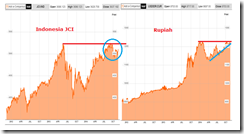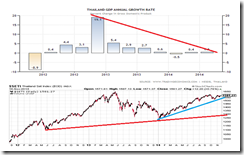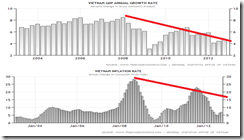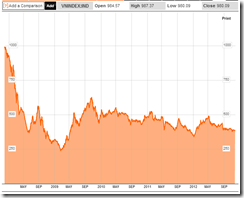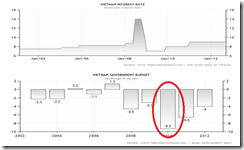In a recent comment at a social web platform, a local politician commented that the reason for the marginal improvements in Vietnam relative to the Philippines had been due to the “effective implementation of their policy”.
While it is true that political policies serve as fundamental framework to social activities, the question that needs to be identified is the kind of policies involved and to what extent the so-called ‘effective implementation’ which results to positive externalities.
For instance, the politician further noted that domestic agricultural issues had signified as a seemingly timeless unresolved imbroglio which needs to be addressed. Unfortunately, he didn’t say how.
Yet in citing Vietnam, what was not elaborated was that the so-called the ‘effective policies’ in agriculture had been the decollectivization or privatization of agricultural lands which served as a crucial step in the transition to a market economy.
As World Bank’s Martin Ravallion and Dominique van de Wallel wrote,
Vietnam's land reform of 1988 abandoned the collective farming system that had been introduced in the 1960s. The 1988 Land Law and its key implementation directive-"Resolution 10"-gave individual households long-term use rights over the collectives' land and other resources. Four million hectares of land were thus scheduled for effective privatization.
Opaque generalized political statements frequently leads to confusion. Statements like this would seem mellifluous to hear for the economic ignorant, yet lack the teeth in terms of specific actions.
Essentially, the fundamental reason for the apparent relative policy success of Vietnam is because of the thrust towards trade liberalization or economic freedom, which implies less government interventionism or political meddling in distributing scarce resources. And this runs contrary to the intone of the local politician.
This from McKinsey Quarterly,
Vietnam began to liberalize its economy in the 1980s, when the country’s leaders launched doi moi (or “renovation”). It was only after President Clinton lifted the US trade embargo in 1994, though, that multinationals began to pile in. Since then, Vietnam has taken off. In 2007, it joined the World Trade Organization (WTO)—just in time for the global financial crisis. The country weathered the storm well, posting 5 percent growth in 2009.
The remarkable embrace of globalization by Vietnam has prompted for a sharp recovery from a once war ravaged economy.
The following chart from the KOF Index of Globalization

Vietnam has undertaken substantial steps to reduce bureaucratic red tape.
The following chart from World Bank’s Doing Business presentation
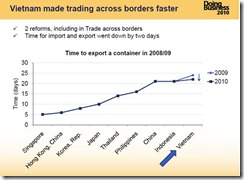
Vietnam has also reduced and streamlined taxes.
According to World Bank’s Doing Business 2010
Vietnam cut the corporate income tax rate from 28 percent to 25 percent and eliminated the surtax on income from the transfer of land. It also adopted a new enterprise income tax law and value added tax law. In addition, increasing competition in the logistics industry and the application of new customs administration procedures as part of the World Trade Organization (WTO) membership reform program have reduced trade delays.
So overall, the marginal edge Vietnam has over the Philippines isn’t because of more politics but because of MORE TRADE.
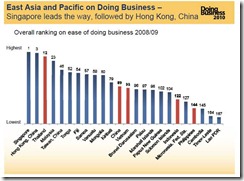
As one would note from the above illustration, Vietnam has surpassed the Philippines in attracting investments by reducing hurdles to investments or has made the political and legal environment more conducive to trade and investments.
And the following chart from Google’s Public data seems to corroborate this.
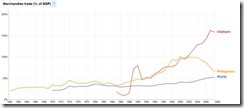
Vietnam’s external trade (% to GDP) has sharply surpassed the Philippines. (Caution: currency values appear less of an influence compared to ease of business environment)
Economics shapes politics.
It is true that Vietnam remains politically a one party authoritarian regime, where according to the Heritage Index of Economic Freedom, “political repression and the lack of respect for basic human rights remain serious concerns.”
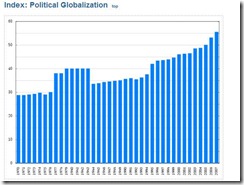
Chart above from KOF Index of Globalization
Nevertheless if economic trends should continue to influence politics, political trends may also gradate towards more openness or democracy. But this isn’t certain, specially not over the near term, as Vietnam may be following China ‘dualistic’ model.
Meanwhile, economic freedom is also reflected on social freedom.
Again from KOF Index of Globalization

And here is more proof that Vietnam’s society have been integrating with the world, this from McKinsey Quarterly,
In 2009, the General Statistics Office estimated that Vietnam had 5 million Internet subscribers and 18 million Internet users. Those figures are impressive for a country at a relatively early stage of digital development, and other estimates suggest the number is even higher. In Hanoi and Ho Chi Minh City, for instance, up to half of the population is now online, spending more than two hours a day, on average. Expenditures on digital marketing for the country as a whole, however, are still very low: only $15 million, according to Cimigo, a market research firm. As Mai Huong Hoang, the chairwoman of one of Vietnam’s leading advertising agencies, the local branch of Saatchi & Saatchi, noted, “TV is still king in Vietnam, because women are the decision makers in the family and they spend a lot of time watching TV.” However, recent McKinsey research in other emerging markets, such as China, India, and Malaysia, suggests that the pace of digital change can be rapid, especially with younger people. Therefore, businesses—particularly consumer goods companies—shouldn’t ignore digital media in their marketing plans.
Bottom line: “Effective policy implementation” means less political interventionism, where people will be incented to harness their innate talents and skills in an environment fertile for business growth.
In other words, Vietnam’s success formula has been the relatively more aggressive adaption of economic freedom compared to the Philippines.
And more politics won’t serve as the elixir to the Philippines’ dismal and lagging performance.





